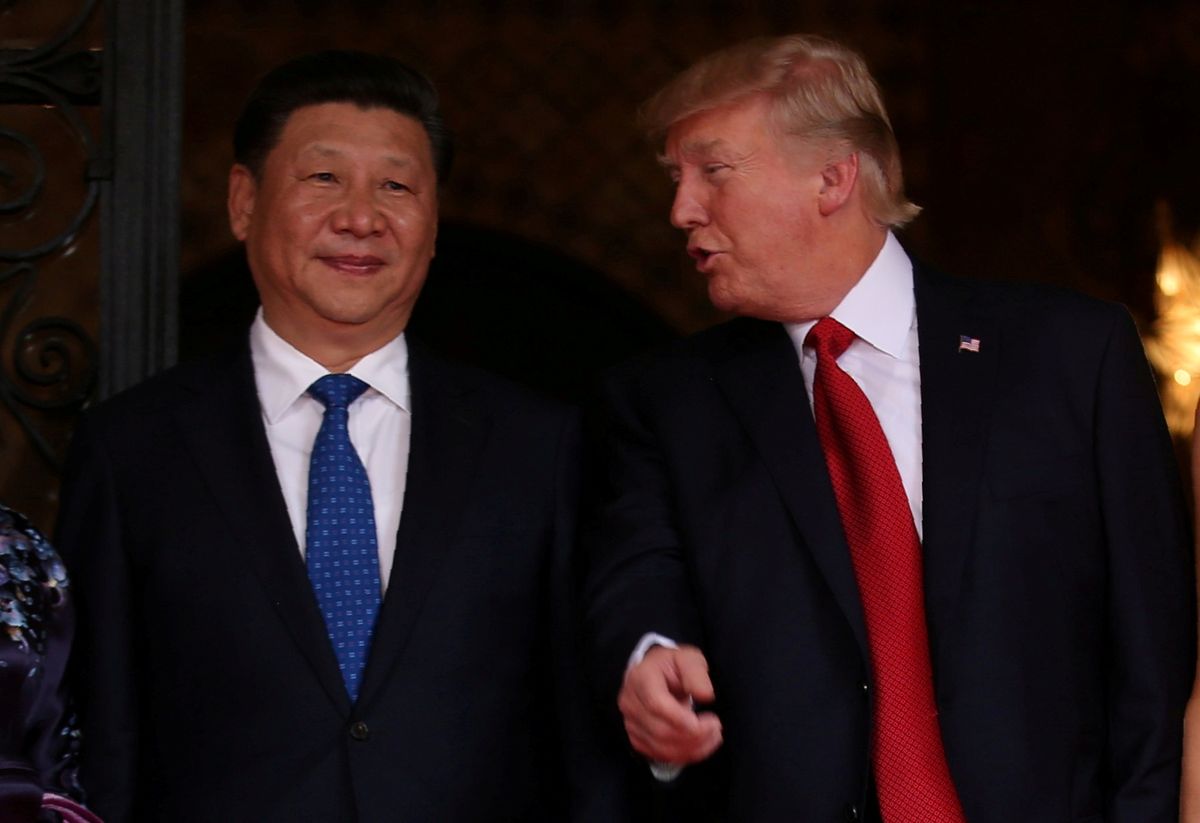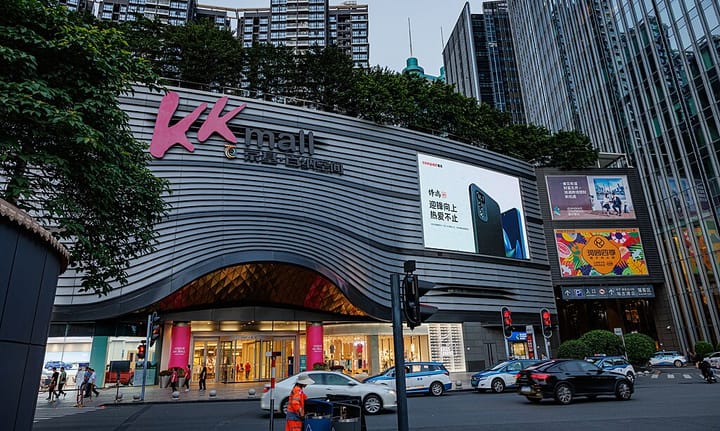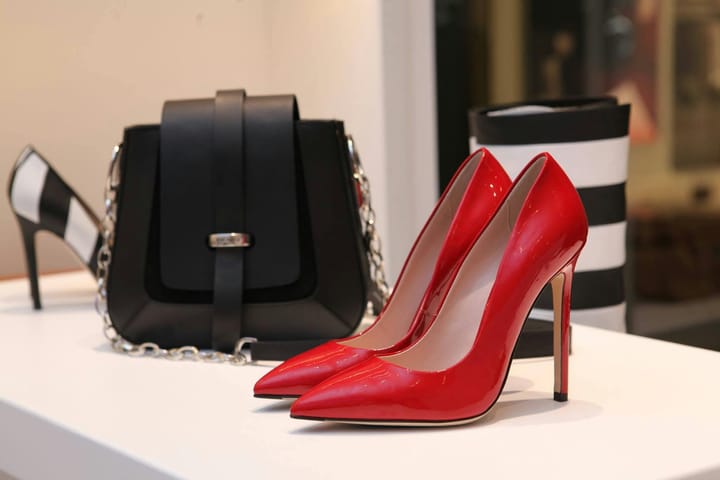Why are Trump’s tax returns linking him to China important?

A few minutes every morning is all you need.
Stay up to date on the world's Headlines and Human Stories. It's fun, it's factual, it's fluff-free.
When asked about national security in the most recent presidential debate, Biden went after Trump’s businesses in China, claiming the president “paid 50 times the tax in China” than he paid in the US.
On September 20, 2020, The New York Times published a report showing that President Donald Trump holds a Chinese bank account under the Trump International Hotel LLC. This bank account received deposits as recently as 2018, raising questions about Trump’s business ties to China.
With only a few weeks left before Election Day in the United States, China has been on the mind of both President Trump and former Vice President Joe Biden. The Trump campaign has repeatedly suggested that Biden will fail to rein in China’s anti-competitive trade practices. With The New York Times recent reporting of Trump’s tax returns and revelations of his undisclosed Chinese bank account, critics hold that the Trump campaign’s attacks are simply deflections to direct attention away from Trump’s business ties.
The Trump campaign has pointed to the former vice president’s son, Hunter Biden, and his business dealings in China as a major conflict of interest. Specifically, the campaign loosely referenced Hunter Biden’s Chinese bank account and levied other accusations that have been found to vary in terms of their credibility.
According to a report by The New York Post, alleged emails reveal close business ties between Hunter Biden and China’s largest private energy firm. The unnamed source refers to “10 held by H for the big guy,” where “H” refers to Hunter Biden and “the big guy” is allegedly a reference to Joe Biden. Tony Bobulinski, a former business partner of Hunter Biden’s, claims he has emails that directly tie the elder Biden to discussions of business deals with China. A Fox News report, though, admits that these emails released by Bobulinski do not make these connections.
At rallies and in debates and interviews, the Trump administration vacillates between unleashing harsh criticisms of China and lavishing praise on the country’s authoritarian leader, Xi Jinping. From using the country as a punching bag for the coronavirus to blaming economic issues on Chinese trade policies, Trump has used China as a scapegoat for many issues.
Trump has gone so far as placing debilitating restrictions on Chinese companies like ZTE Corp. over concerns of national security, only to pull back restrictions after coming to an agreement with the Chinese government. Shortly after this change in course, however, Ivanka Trump, the president’s daughter, was granted 16 trademarks from China’s Trademark Office, raising eyebrows about the president’s true motivation. Taking a deeper look into the Trump family’s business dealings in China and a history of moves by the Trump Organization and the president’s family has raised questions over Trump’s intentions.
In the findings in President Trump’s tax documents, The New York Times reported that Trump, under an LLC, holds a bank account in China. The LLC, Trump International Hotel Management, allows Trump to avoid declaring the bank account on his public financial disclosures.
The tax records themselves show income payments of US$188,561 from 2013 to 2015. The most recent deposit into this account was in 2018, occurring during his presidency. Though it is unclear what bank holds Trump’s money, some have drawn connections to Chinese conglomerate HNA Group Co., which rented out three floors in Trump Tower in New York City.
Despite consistently singling out China in his “America First” rhetoric, the Trump Organization has invested US$192,000 in five Chinese businesses, which in turn claimed US$97,000 in business expenses since 2010.
Trump has a long history of investments in China, dating back to a failed real estate venture in Guangzhou in 2008. A few years later in 2012, The Trump Hotel Collection (THC) opened its first branch in Shanghai with ten employees, with the intention of opening hotels throughout the country. In 2016, THC chief executive officer Eric A. Danziger declared that the company would build 20 to 30 Scion Hotels in major Chinese cities.
Despite the appearance of a conflict of interest, no legal claims have been brought against Trump or his family. The Internal Revenue Service (IRS) does not legally require individuals to declare any income obtained in other countries. However, the Emoluments Clause of the US Constitution states that “[N]o Person holding any Office of Profit or Trust under [the United States], shall, without the Consent of the Congress, accept of any present, Emolument, Office, or Title, of any kind whatever, from any King, Prince, or foreign State.”
The Emoluments Clause was written by the Founding Fathers in order to ensure the people in positions of governmental power are not motivated by their own self-interest, but by the national interest. The president’s foreign bank accounts and business interests raise even further questions about Trump’s impetus. If found to be in violation of the Emoluments Clause, it could be grounds for filing articles of impeachment, which is unlikely to happen if Trump retakes the presidency by popular mandate in the upcoming election.
Alan Garten, a lawyer representing the Trump Organization, responded to the reporting in The New York Times by describing the bank account as a way to pay international taxes and “to explore the potential for hotel deals in Asia.” However, the bank account has remained stagnant, Garten explained, “No deals, transactions or other business activities ever materialized and, since 2015, the office has remained inactive.”
When asked about national security in the most recent presidential debate, Biden went after Trump’s businesses in China, claiming the president “paid 50 times the tax in China” than he paid in the US. Biden went on to point out that he has voluntarily released his tax returns, while Trump claims an IRS audit does not allow his taxes to be released. Later that week, former President Barack Obama brought up Trump’s Chinese bank account, saying that it was “not a great idea to have a president who owes a bunch of money to people overseas.”
Trump also directly responded to the release of his taxes during the debate, stating he was simply a “businessman doing business.” Trump also claimed that his business in China was wrapped up in 2015 before he ran for president.
Have a tip or story? Get in touch with our reporters at tips@themilsource.com




Comments ()